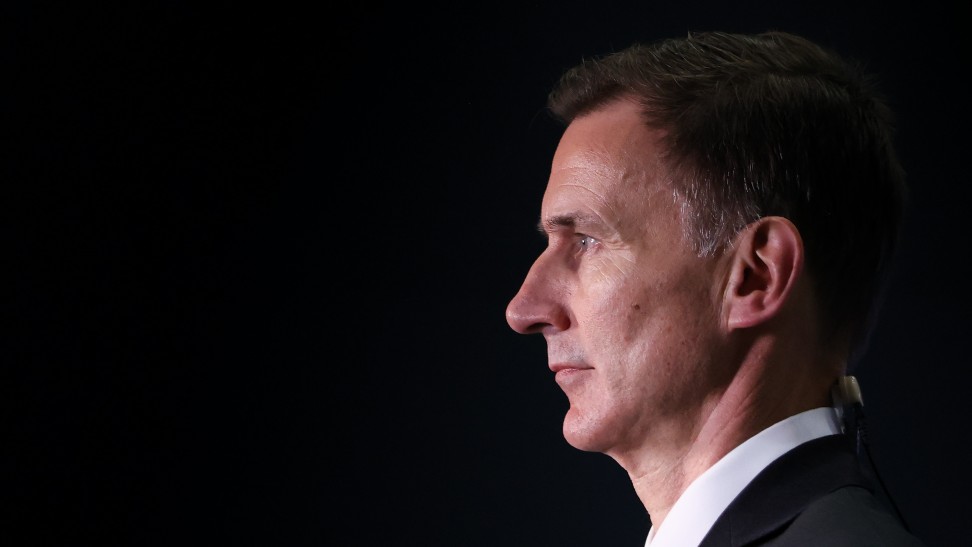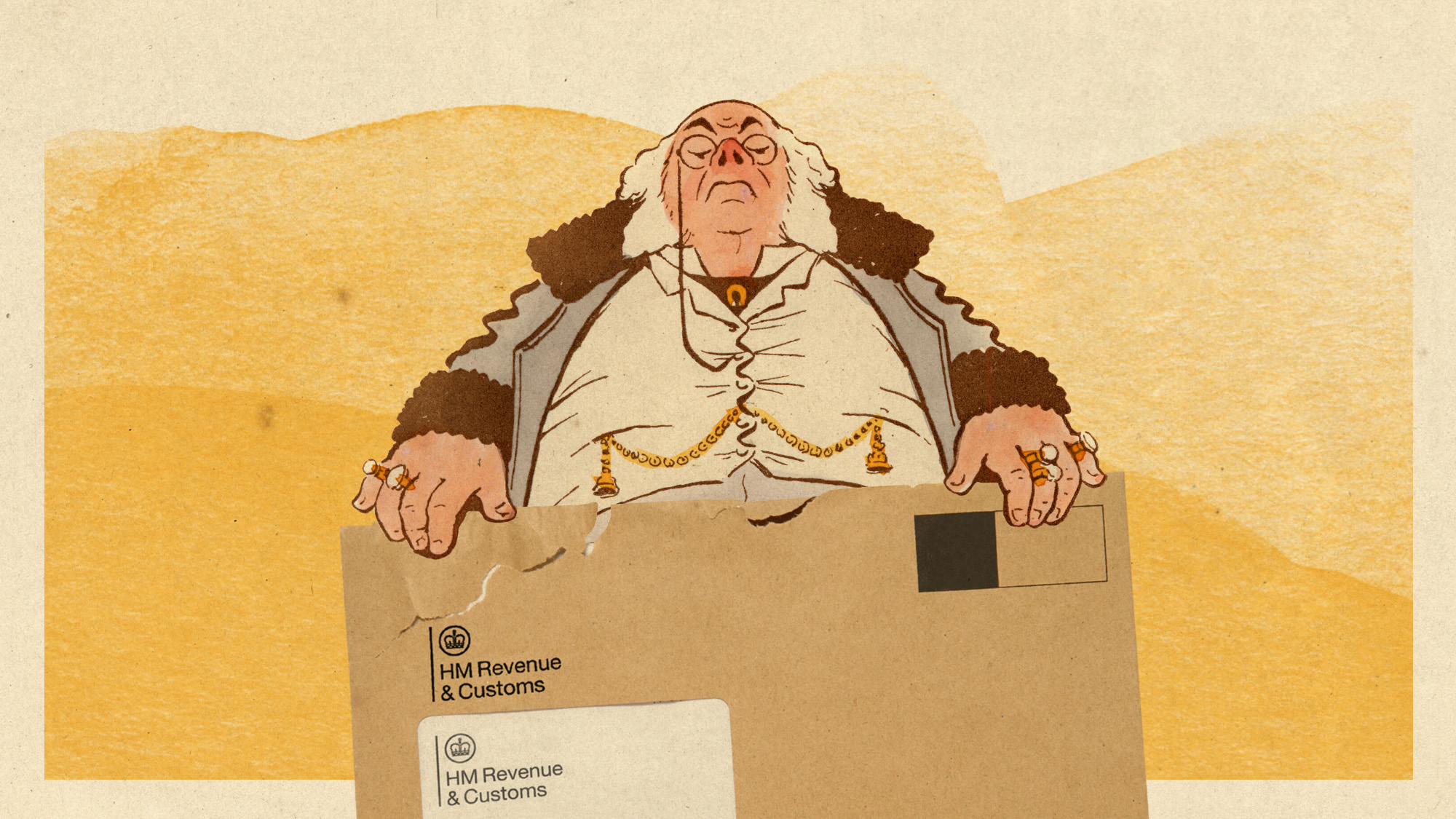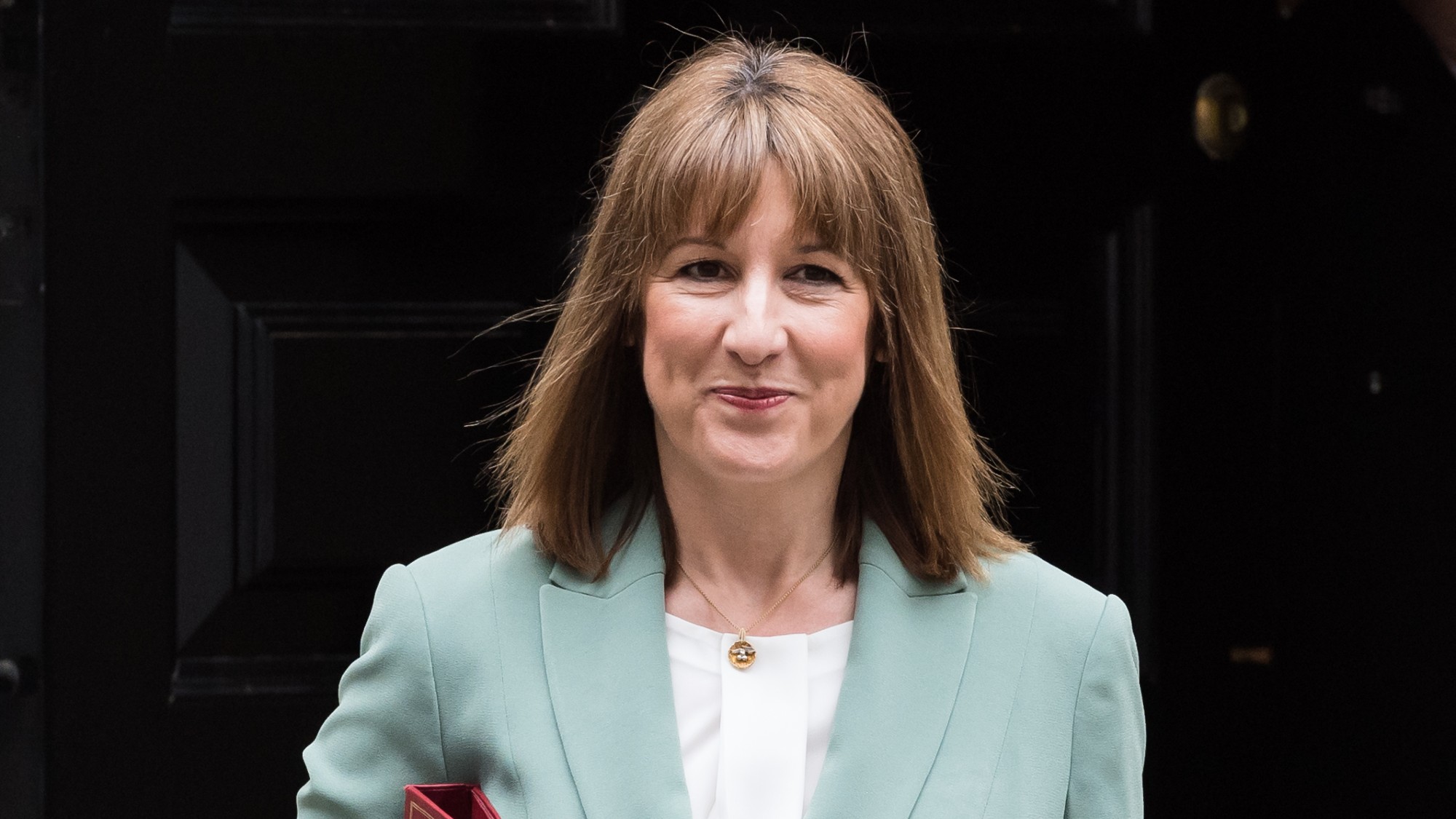Withdrawing benefits: 'war on work shy' or 'matter of fairness'?
Jeremy Hunt to boost minimum wage while cracking down on claimants who refuse to look for work

A free daily email with the biggest news stories of the day – and the best features from TheWeek.com
You are now subscribed
Your newsletter sign-up was successful
Jeremy Hunt has vowed to "make work pay" by boosting the minimum wage and cracking down on benefit claimants who refuse to look for a job.
Setting out a series of changes to the welfare system, the chancellor will use his speech at the Conservative Party conference in Manchester today to announce that the National Living Wage will rise to "at least" £11 an hour from next April, providing a pay rise to two million people. Hunt will also argue that the welfare safety net is "a social contract that depends on fairness to those in work alongside compassion to those who are not".
The government will review the way benefits sanctions work. "It is a fundamental matter of fairness," he is expected to say. "Those who won't even look for work do not deserve the same benefits as people trying hard to do the right thing."
The Week
Escape your echo chamber. Get the facts behind the news, plus analysis from multiple perspectives.

Sign up for The Week's Free Newsletters
From our morning news briefing to a weekly Good News Newsletter, get the best of The Week delivered directly to your inbox.
From our morning news briefing to a weekly Good News Newsletter, get the best of The Week delivered directly to your inbox.
'More radical approach'
Hunt will use his keynote speech to "declare war on 100,000 work-shy benefit claimants", the Daily Mail reported. The full details of how the benefits regime will be made tougher are still being hammered out and will be unveiled in the chancellor's autumn statement next month.
According to the Department for Work and Pensions (DWP), there are currently around 5.2 million Britons on out-of-work benefits – a figure that soared during the pandemic and has not yet returned to pre-2020 levels.
Few Conservatives will argue against tougher sanctions for benefits claimants but Hunt "could and should go far further", said Ross Clark in The Spectator.
Clark suggested a "more radical approach" would be to abolish unemployment benefits altogether and instead offer anyone who wants it three days a week guaranteed work at the National Living Wage. The government's opponents would deride it as "US-style workfare", Clark argued, but "forcing people to turn up and do some work in return for their keep would ensure that they remain in the practice of employment".
A free daily email with the biggest news stories of the day – and the best features from TheWeek.com
Fair, financially responsible or politically motivated?
The measures are driven by spending pressures on the welfare budget, one Whitehall source suggested to The Guardian, and presented as reforms to get benefit claimants back into work.
Indeed, some leading Tories are "keen to bring down the benefits bill, partly with a major drive to reduce the numbers of economically inactive, and also by encouraging more over 50s back into the workplace", added Politico's London Playbook.
Work and Pensions Secretary Mel Stride will also use his speech to conference today to unveil plans for a crackdown on "deadbeat dads" who refuse to make maintenance payments for their children.
The Conservatives are also trying to "create a dividing line with Labour" ahead of the general election, said The Times.
The focus on benefits has "echoes of the policy promoted by David Cameron and George Osborne", said The Telegraph. "Their framing of the Tories as being on the side of 'workers not shirkers' helped win the 2015 general election," said the paper.
Amid the clamour for tax cuts – not least from the former PM Liz Truss – the development minister, Andrew Mitchell, warned that this should not be done "on the backs of the poorest", said The Guardian.
"We need to be very clear that we have very properly protected throughout the last 13 years of Conservative government the most vulnerable by maintaining and in some cases increasing the value of their benefits" he said. "That's the right thing for any government to do in any civilised society."
-
 Political cartoons for February 15
Political cartoons for February 15Cartoons Sunday's political cartoons include political ventriloquism, Europe in the middle, and more
-
 The broken water companies failing England and Wales
The broken water companies failing England and WalesExplainer With rising bills, deteriorating river health and a lack of investment, regulators face an uphill battle to stabilise the industry
-
 A thrilling foodie city in northern Japan
A thrilling foodie city in northern JapanThe Week Recommends The food scene here is ‘unspoilt’ and ‘fun’
-
 Can Nigel Farage and Reform balance the books?
Can Nigel Farage and Reform balance the books?Today's Big Question Nigel Farage has, for the first time, ‘articulated something resembling a fiscal rule’ that he hopes will win over voters and the markets
-
 Autumn Budget: will Rachel Reeves raid the rich?
Autumn Budget: will Rachel Reeves raid the rich?Talking Point To fill Britain’s financial black hole, the Chancellor will have to consider everything – except an income tax rise
-
 Pros and cons of a wealth tax
Pros and cons of a wealth taxPros and Cons Raising revenue and tackling inequality vs. the risk of capital flight and reduced competitiveness
-
 Is Rachel Reeves going soft on non-doms?
Is Rachel Reeves going soft on non-doms?Today's Big Question Chancellor is reportedly considering reversing controversial 40% inheritance tax on global assets of non-doms, after allegations of 'exodus' of rich people
-
 How could stock market slides affect you?
How could stock market slides affect you?Today's Big Question Pensions, prices and jobs at risk as Donald Trump's 'Liberation Day' measures take hold
-
 Foreigners in Spain facing a 100% tax on homes as the country battles a housing crisis
Foreigners in Spain facing a 100% tax on homes as the country battles a housing crisisUnder the Radar The goal is to provide 'more housing, better regulation and greater aid,' said Spain's prime minister
-
 What's next for electric vehicles under Trump?
What's next for electric vehicles under Trump?Today's Big Question And what does that mean for Tesla's Elon Musk?
-
 The row over UK maternity pay
The row over UK maternity payTalking Points Tory leadership hopeful Kemi Badenoch implied that taxpayer-funded benefit was 'excessive' and called for 'greater responsibility'